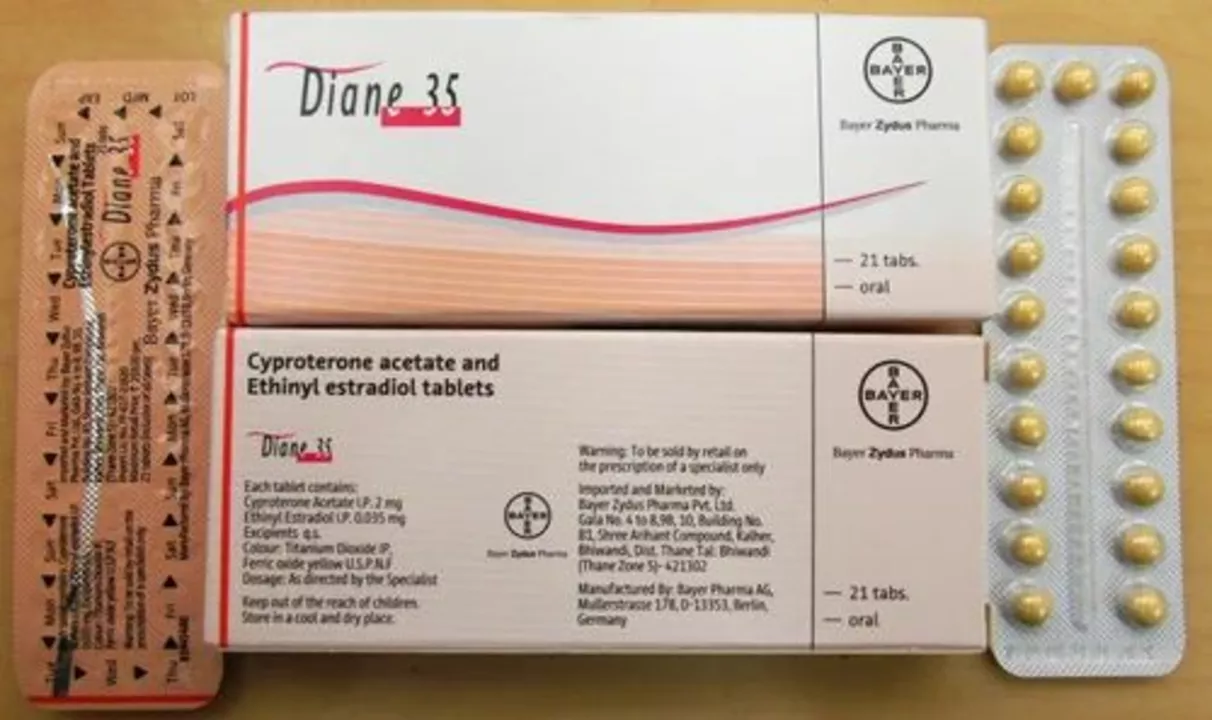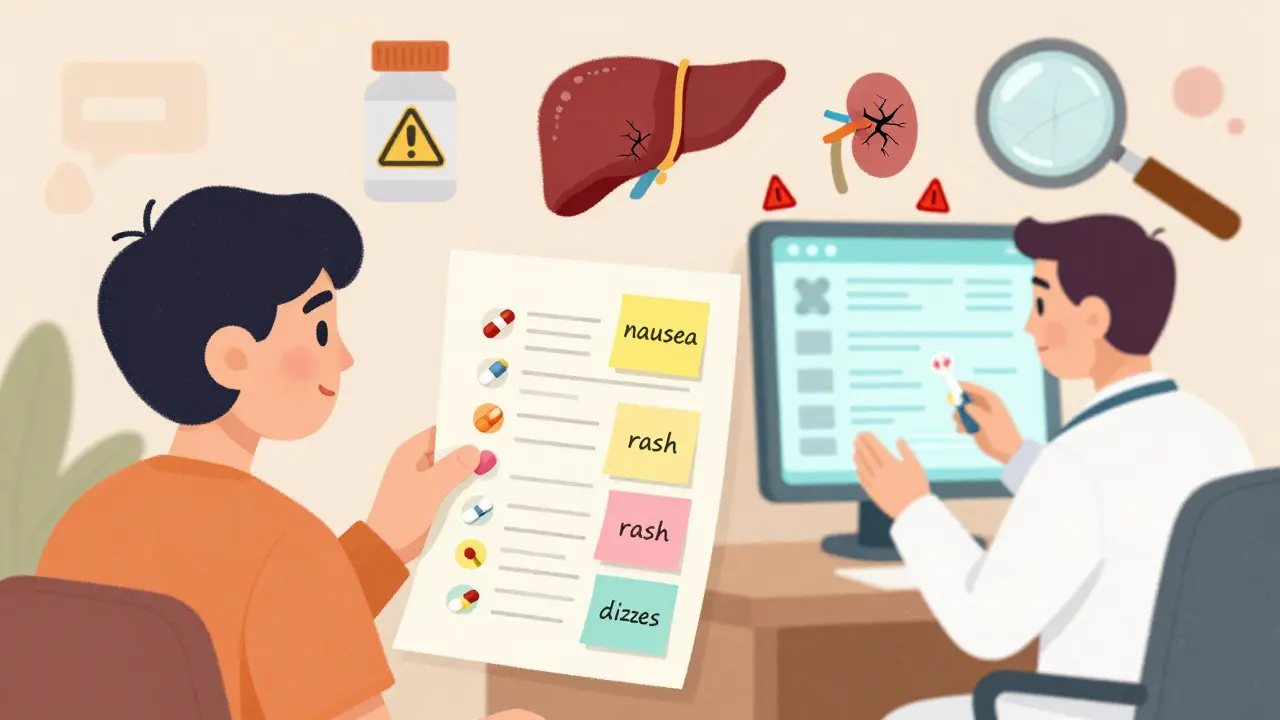Understanding Ethinyl Estradiol and Its Role in Birth Control
Ethinyl estradiol is a synthetic form of the female hormone estrogen, and it plays a vital role in many birth control pills. It works by regulating the menstrual cycle, preventing the release of an egg, and thickening the cervical mucus to hinder sperm movement. This combination of effects effectively prevents pregnancy. However, like any medication, ethinyl estradiol can interact with other drugs, leading to reduced effectiveness or an increased risk of side effects. In this article, we'll explore some common drug interactions and what you can do to avoid them.
Antibiotics and Ethinyl Estradiol: A Risky Combination
Some antibiotics can interfere with the effectiveness of ethinyl estradiol, potentially leading to unplanned pregnancies. These antibiotics may speed up the breakdown of ethinyl estradiol in the body, reducing its ability to prevent pregnancy. Examples of antibiotics that can cause this interaction include rifampin, rifabutin, and griseofulvin. If you are taking any of these medications, discuss your birth control options with your healthcare provider to find the safest and most effective method for you.
Antifungal Medications: Another Reason for Caution
Similar to antibiotics, some antifungal medications can also interact with ethinyl estradiol. These medications, such as ketoconazole and itraconazole, can increase the risk of side effects from ethinyl estradiol. This is because they can slow down the breakdown of ethinyl estradiol in the body, leading to higher levels of the hormone. If you're taking antifungal medications, be sure to discuss your birth control options with your healthcare provider.
Anticonvulsant Medications and Birth Control Interactions
Anticonvulsant medications, used to treat epilepsy and other seizure disorders, can also interfere with the effectiveness of ethinyl estradiol. Some examples of these medications include phenobarbital, carbamazepine, and oxcarbazepine. These drugs can speed up the breakdown of ethinyl estradiol in the body, making it less effective at preventing pregnancy. If you are taking anticonvulsant medications, talk to your healthcare provider about alternative birth control methods that may be more suitable for you.
St. John's Wort: A Herbal Remedy with Potential Risks
St. John's Wort, a popular herbal remedy for depression, can also interact with ethinyl estradiol. This herb can decrease the effectiveness of ethinyl estradiol, increasing the risk of unplanned pregnancy. If you're using St. John's Wort, it's essential to discuss your birth control options with your healthcare provider to ensure you're using the most effective method available.
HIV Medications and Ethinyl Estradiol: Balancing Treatment and Birth Control
Some HIV medications, such as protease inhibitors and non-nucleoside reverse transcriptase inhibitors, can interact with ethinyl estradiol. These medications can either increase or decrease the effectiveness of ethinyl estradiol, depending on the specific drug. It's crucial to inform your healthcare provider about all the medications you're taking so that they can help you find the best birth control method for your needs.
Cholesterol-Lowering Drugs: A Potential Interaction to Watch
Some cholesterol-lowering medications, called statins, can interact with ethinyl estradiol. Atorvastatin and simvastatin, for example, can increase the levels of ethinyl estradiol in your body, leading to an increased risk of side effects. If you're taking statins, be sure to inform your healthcare provider so that they can help you choose the most appropriate birth control method.
Thyroid Medications: A Delicate Balance
Thyroid medications, such as levothyroxine, can interact with ethinyl estradiol. This interaction can lead to reduced effectiveness of both the thyroid medication and the birth control pill. It's essential to inform your healthcare provider if you're taking thyroid medications so that they can help you find the best approach to managing your thyroid condition and birth control needs.
Grapefruit Juice: An Unexpected Interaction
Grapefruit juice can interfere with the breakdown of ethinyl estradiol in the body, leading to increased levels of the hormone and a higher risk of side effects. If you enjoy grapefruit juice or other grapefruit products, it's essential to discuss this with your healthcare provider to ensure that your birth control method remains effective and safe.
Monitoring Your Medications and Communicating with Your Healthcare Provider
In conclusion, various medications and substances can interact with ethinyl estradiol, potentially affecting its ability to prevent pregnancy or causing side effects. It's crucial to inform your healthcare provider about all the medications, supplements, and herbal remedies you're taking so that they can help you find the safest and most effective birth control method for your needs. By staying informed and communicating openly with your healthcare team, you can minimize the risk of drug interactions and ensure that your birth control is as effective as possible.









kiran kumar
May 6, 2023 AT 15:50dont trust every warning most meds dont actually kill your birth control
Brian Johnson
May 18, 2023 AT 05:37I've seen a lot of people get confused when they hear about drug interactions, so it's worth taking a step back and looking at the big picture. The key is to keep an open line of communication with your healthcare provider, especially when you start a new medication or supplement. Most of the time, a quick review of your prescription list can prevent unwanted surprises. Remember that not every antibiotic or antifungal will knock out the pill's effectiveness, but it's better to be safe than sorry.
Jessica Haggard
May 29, 2023 AT 19:24When you think about ethinyl estradiol, it's easy to get caught up in the scare stories that circulate online, but the reality is much more nuanced. First, the pill's metabolism can be influenced by a surprisingly wide range of substances, from prescription drugs to everyday foods. Rifampin, for example, is a classic inducer that can accelerate the breakdown of estrogen, potentially lowering its contraceptive reliability. On the flip side, certain antifungals like ketoconazole can inhibit metabolic pathways and raise estrogen levels, which may increase the chance of side effects such as nausea or breast tenderness. Anticonvulsants such as carbamazepine operate in a similar fashion to rifampin, making dose timing and alternative birth control methods a serious consideration for patients with epilepsy. Herbal supplements are not exempt; St. John’s Wort is notorious for activating enzymes that diminish hormone concentrations, so anyone using it should discuss backup contraception with their doctor. Even something as innocent as grapefruit juice can meddle with the cytochrome P450 system, leading to higher estradiol concentrations and a heightened clotting risk for susceptible individuals. HIV protease inhibitors throw another wrench into the works, sometimes boosting hormone levels and sometimes reducing them, depending on the specific drug, which underscores the importance of individualized counseling. Statins, particularly simvastatin, have been reported to modestly increase estrogen exposure, although the clinical significance varies from person to person. Thyroid hormone replacement can also create a two‑way street, where levothyroxine effectiveness drops and the pill’s reliability is compromised if dosing isn’t carefully coordinated. The bottom line is that you don’t have to abandon hormonal contraception, but you do need to stay vigilant and proactive. Schedule regular check‑ins with your provider whenever you add, remove, or change any medication, and keep a written list of everything you’re taking, including over‑the‑counter products. If you’re prescribed a strong enzyme inducer, ask about using a backup method like condoms during the first few weeks of treatment. Conversely, if you experience any unusual symptoms, such as sudden weight gain, severe headaches, or unexplained bruising, bring them up immediately, as they could signal hormone level shifts. Finally, remember that cultural attitudes toward contraception differ around the world, and being respectful of those perspectives can help you have honest conversations with both partners and clinicians.
Alan Clark
June 10, 2023 AT 09:10that's a solid rundown, and it's pretty hopeful knowing you can just tweak the schedule
most docs will set a safe window and you'll stay protected
Mark Anderson
June 21, 2023 AT 22:57absolutely! think of it as fine‑tuning a symphony – each pill, each med hits a note, and when they harmonize, the rhythm stays steady and safe
Shouvik Mukherjee
July 3, 2023 AT 12:44it's understandable to feel uneasy when you hear about interactions, but remember that knowledge is your best ally. keeping a written list of everything you take and sharing it with your clinician can turn uncertainty into confidence. together you can choose the safest plan without fear.
Ben Hooper
July 15, 2023 AT 02:30many over‑the‑counter supplements also tweak hormones just check labels before adding new products